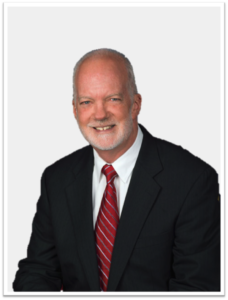John B. Charles, Ph.D., is the current Scientist in Residence at Space Center Houston and i s a former Chief Scientist of NASA’s Human Research Program (HRP), where he was responsible for the scientific direction of human research and technology development enabling astronauts to go beyond low Earth orbit and eventually to Mars. Previously he was HRP’s Associate Manager for International Science and led NASA’s space life sciences planning for the joint US/Russian one-year mission on ISS and the Twins Study.
s a former Chief Scientist of NASA’s Human Research Program (HRP), where he was responsible for the scientific direction of human research and technology development enabling astronauts to go beyond low Earth orbit and eventually to Mars. Previously he was HRP’s Associate Manager for International Science and led NASA’s space life sciences planning for the joint US/Russian one-year mission on ISS and the Twins Study.
With his extensive scientific knowledge at NASA, Dr. Charles adds expertise in space exploration. His knowledge and background in manned space flight and mapping the journey to Mars provides authentic leadership lessons from NASA's astronauts.
Dr. Charles earned his B.S. in biophysics at The Ohio State University and his doctorate in physiology and biophysics at the University of Kentucky. He came to the Johnson Space Center in 1983 a postdoctoral fellow and became a civil servant in 1985. He is co-developer of the fluid-loading countermeasure to help protect Space Shuttle astronauts from fainting during re-entry and landing, and investigated the cardiovascular effects of space flight using ultrasound, re-entry data recording and in-flight lower body negative pressure on Space Shuttle astronauts and on crewmembers of the Russian space station Mir. He coordinated all of the NASA-sponsored biomedical, biological and microgravity science investigations as Mission Scientist for American astronaut missions on Mir, on STS-95, John Glenn’s Shuttle flight, and on STS-107, Columbia’s last mission in January 2003. He was also the life sciences representative to NASA’s human Mars mission planning activities in the 1990s.
He is a Fellow of the Aerospace Medical Association and has been a member since 1983. He is also a Full Member of the International Academy of Astronautics (IAA) and co-chaired the 18th IAA “Humans in Space Symposium” in Houston in 2011.
He has published 75 scientific papers and space history articles and has received several professional awards, including National Space Club and Foundation Eagle Manned Mission Award (2017), the “Joe Kerwin Award” (2011) and the “Hubertus Strughold Award” (2001) of the Aerospace Medical Association, and the NASA Exceptional Service Medal (2000) and the NASA Exceptional Achievement Medal (2014).
